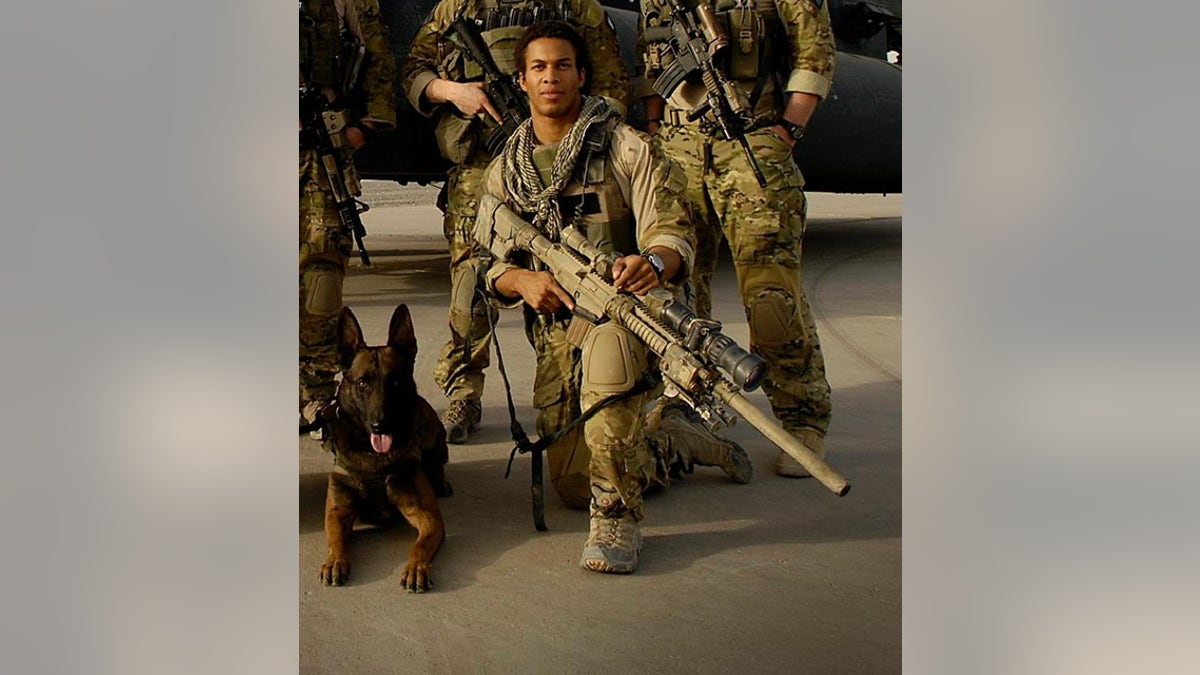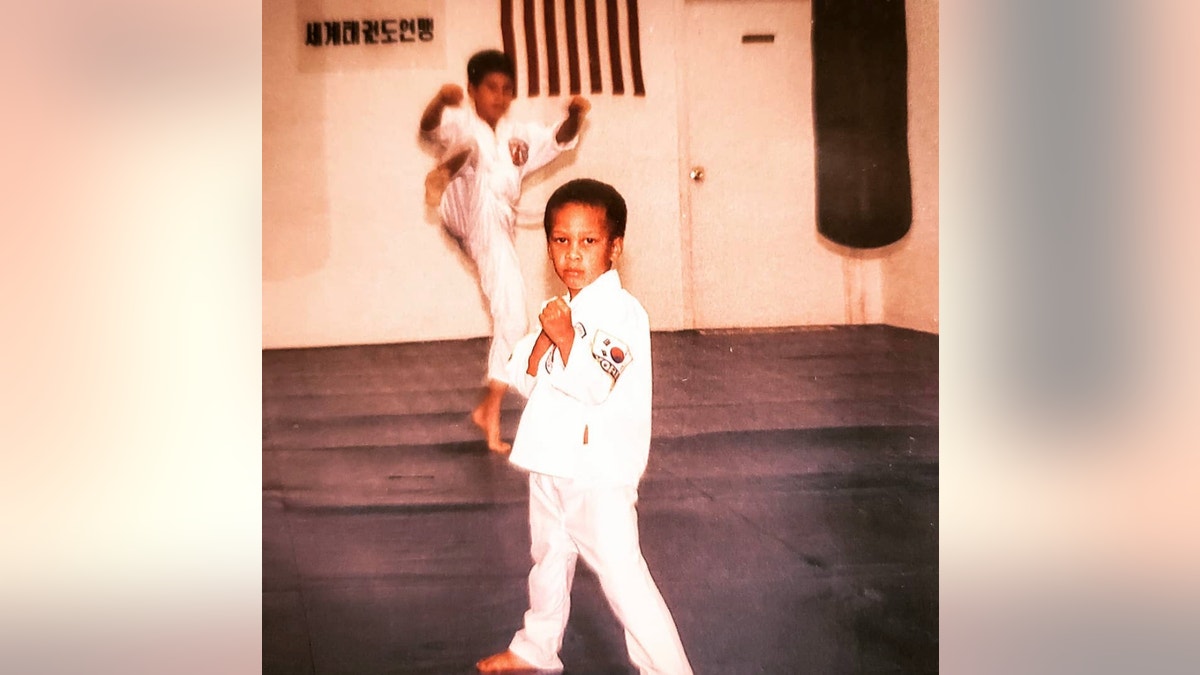More than a decade later, Nicholas Irving stills can’t shake his close call with death. On his sixth deployment in Afghanistan’s Helmand Province, he said he knew it wouldn’t be the usual quiet deployment he had become accustomed to. "We got there, and I knew there was going to be a different deployment, despite all the stories we were told about Afghanistan was relatively boring," Irving said. "Nothing ever happens in Afghanistan."
In 2009, the reality on the ground was far from boring or quiet. At the time the United States had sent 4,000 troops in the Helmand Province to help regain control from Taliban fighters, who had control over poppy fields in the area and was smuggling opioids to fund their insurgence.
Then 23-year-old Sergeant Nicholas Irving was on the ground making a name for himself. He was the first African American Special Operations Sniper to deploy with the 3rd Ranger Battalion. He was a sniper team leader and was proving to be among the deadliest.
"Every time we went out, I was pulling a trigger every single time," he said.
His sharp shooting skills had caught the attention of a Reconnaissance team, who needed Irving to take out a high-value-target from 800 meters away. Irving said the shot would be very hard, if not impossible, but he wasn’t about to let the special operation slip away, so he agreed to take the shot.

Nicholas Irving at the end of his deployment in Afghanistan in 2009. Irving is the first African American Special Operations Sniper to deploy with the 3rd Ranger Battalion. He recorded a record 33 confirmed kills in a 100-day span. (Nicholas Irving)
Over several days, Irving, his spotter, Pemberton, and the Reconnaissance team traveled through the sweltering hot Afghanistan desert. Along the way, they met with and helped a Marine unit who had taken a local school from the Taliban and had come under fire every day.
"They were getting attacked every morning. They typically took over the school that the Taliban had bombed and destroyed," he recalled. "The marines functioned out of there and they were getting attacked every morning and they asked if we could help."
He used his sharp shooting skills to take out a target who was about to shoot a group of Marines with a rocket-propelled-grenade. At a half mile distance, it was Irving’s longest shot of that deployment.
However, there was no time to marvel in his skill because Irving and the Reconnaissance team still had their mission ahead of them.
"It was an all-day event, all day event we ended up going in. At night, and night quickly turn into daytime, and as the sun started to rise, everything kicked off. It was completely surrounded. We got ambushed," Irving said. "Then we learned we were pinned down by a sniper."
DC NATIONAL GUARD DEPLOYMENT IN NATION'S CAPITAL EXTENDED THROUGH END OF MARCH
It was one terrifying moment for Irving, who was used to being the sniper fixated on the target—not the other way around. He and his comrades took cover in a small hole in the ground as Taliban fighters shot bullets that barely missed Irving and his fellow men.
"It was one of the most frightful events I've ever experienced in my life and it allowed the other guys on the ground who was surrounding us to close in on us and I remember looking at my reconnaissance team leader, and we had this decision, we're going to pull the pin on a grenade, jump on it, kill ourselves because we didn't want to get captured."
In the moment, he thought back to his childhood. The son of two cold war veterans, Irving grew up in government housing in Severn, Maryland. He said he had few friends and struggled to find an interest in school.
"I got bullied a lot, a lot of fights. A lot of chased [sic] home after school."

Nicholas Irving poses in martial arts class as child. (Nicholas Irving)
What did interest him, was military snipers. Irving said he and his dad would watch ‘The Delta Force’ movies on weekends and that grew his interest in snipers even more.
"Sixth grade is when it really kicked off and all my focus was tailored around being in the army from ROTC to joining the Navy Sea Cadet Corps and going to baby seal program," he said.
FOR MORE THAN 7 DECADES, US SOLDIERS SERVE AS 'FATHER CHRISTMAS' FOR PERILED ORPHANS IN JAPAN
At 17, he enlisted in the US Military. By the age of 23 he had become the first African American sniper to deploy with the 3rd Ranger Battalion.
"A couple of guys in the sniper section would say, ‘Hey man, I don't think I've ever seen a black guy in sniper section.’"
Irving left little room for mistake. Being one of only a few Black people he said felt everything he did reflected on him being black. So, he stood out like no other, earning the nick name "Reaper" for all the confirmed kills he was racking up as a sniper, something he said was rare.
"I think it's weird for a sniper to get one. Like, our job is not even to really go out there and put bullets in targets. It's mainly to observe," he said. "I knew what I was doing, and I wanted the action."
Back in Afghanistan, Irving and his fellow soldiers got back from a Marine unit after an hours-long battle with Taliban fighters that saw some of his comrades wounded. The group was able to escape to a safe house and secure their targets before Nick and his spotter led them to waiting Humvees they had to cram into.
Irving made it out of Afghanistan as one of the 3rd Ranger Battalion’s deadliest snipers with a record 33 confirmed kills in a 100-day span.
Back at home, what Irving saw and had been through weigh heavy on him. He was finally reunited with his wife, Jessica, but he struggled to adjust to civilian life again.
"I just screamed, and I cried a lot in my car."
CLICK HERE TO GET THE FOX NEWS APP
For a while Irving said he fell into a depression and turned to drinking for a while.
"It was a weird state to be in," Irving said. "Up until the birth of my son. That’s when life changed for me. That was the day I quit drinking alcohol, just an abrupt stop."
Irving also found a love for writing, publishing an autobiography and several war novels.
He’s turned the page on his days as the Reaper. Today, his life’s focus is being a loving father and husband. While he’s proud of what he has accomplished in his military career, Irving said he’s happy he can just be Nick these days.
"It was just a chapter, it’s a chapter. it was really good, but I’m not at the end."











































